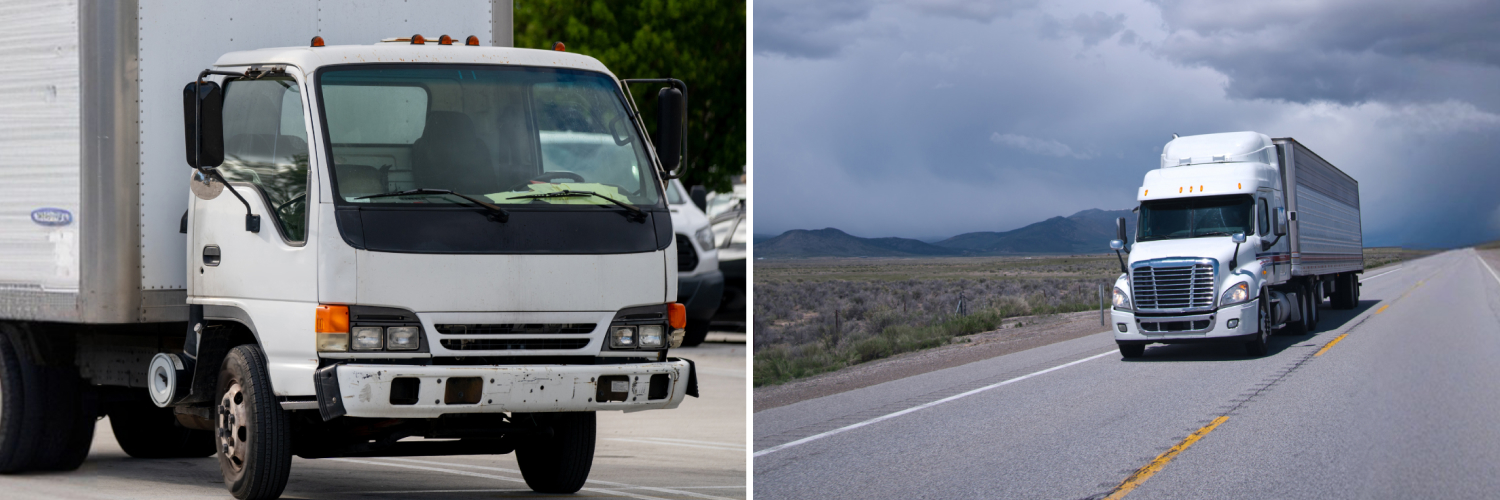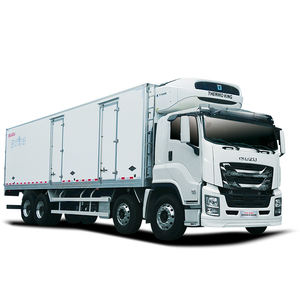Advanced Thermo King Truck Refrigeration Units for Trusted Distribution
Advanced Thermo King Truck Refrigeration Units for Trusted Distribution
Blog Article
Leading Developments in Transport Refrigeration: Enhancing Effectiveness and Security
The landscape of transport refrigeration is undertaking considerable change, driven by innovations focused on improving both efficiency and safety and security. Secret advancements such as clever temperature surveillance systems, eco-friendly cooling agents, and automated route optimization are crucial in dealing with the industry's difficulties. These technologies not only make sure the honesty of temperature-sensitive products but additionally add to sustainability initiatives. As these developments remain to develop, it is vital to discover their effects on operational techniques and regulatory conformity, prompting a better exam of how they improve the future of transportation refrigeration.
Smart Temperature Level Keeping Track Of Solutions
In the world of transportation refrigeration, clever temperature monitoring systems have arised as an essential innovation for guaranteeing the stability of temperature-sensitive products. These innovative systems utilize Net of Points (IoT) technology to provide real-time data on temperature changes, allowing operators to preserve ideal conditions throughout the supply chain. By constantly tracking the temperature of cooled containers and cars, business can quickly determine variances that may jeopardize product quality.

Additionally, clever monitoring systems commonly incorporate automated informs and notifications, enabling stakeholders to respond promptly to any kind of prospective concerns. This aggressive technique not just reduces the danger of spoilage however additionally enhances compliance with regulative criteria governing food security and pharmaceutical transportation.
The integration of data analytics within these systems likewise promotes predictive maintenance, assisting drivers to predict potential equipment failures prior to they happen. This capacity reduces downtime and optimizes operational effectiveness, eventually bring about set you back savings.
Eco-Friendly Refrigerants
Smart temperature level monitoring systems play a crucial duty in maintaining product high quality, however the performance of transportation refrigeration also hinges on the option of cooling agents made use of. In comparison, arising alternatives like hydrocarbon-based refrigerants and hydrofluoroolefins (HFOs) present reduced GWP options, using both efficiency and sustainability.
These environmentally friendly cooling agents not just decrease ecological influence yet also align with global regulations focused on eliminating damaging compounds. Their fostering can cause improved power effectiveness, eventually minimizing operating expense for transportation refrigeration systems. The usage of all-natural refrigerants, such as ammonia and carbon dioxide, has gained grip due to their exceptional thermodynamic residential properties and lower environmental impact.
Purchasing environment-friendly refrigerants is not merely a governing compliance step; it stands for a critical decision that enhances brand name track record and fosters consumer commitment. refrigerated transportation thermo king. By focusing on sustainable techniques, business can add to a greener future while making sure the integrity of moved products
Advanced Insulation Materials
Using advanced insulation products is crucial for maximizing transport refrigeration systems, as they significantly improve energy effectiveness and maintain constant temperature level control. Standard insulation methods commonly drop short in protecting against thermal transfer, resulting in raised energy intake and fluctuating temperature levels within refrigerated areas.
Emerging products such as vacuum cleaner insulated panels (VIPs) and aerogels supply exceptional thermal resistance, permitting thinner accounts without compromising efficiency. VIPs, for example, make use of a vacuum layer to reduce convective and conductive heat transfer, making them excellent for space-constrained applications. Aerogels, known for their lightweight and permeable structure, supply remarkable insulation while substantially lowering overall system weight.
Furthermore, integrating stage change materials (PCMs) into insulation systems can additionally maintain temperature levels throughout transit. These materials absorb and release thermal energy, successfully buffering versus exterior temperature level variants.
The assimilation of these advanced insulation materials not only reduces the operational costs related to energy consumption but likewise prolongs the life span of temperature-sensitive goods. As the transport refrigeration market proceeds to progress, the fostering check here of cutting-edge insulation modern technologies will certainly be essential in boosting both effectiveness and security in cooled transport.
Automated Path Optimization
The efficiency of transport refrigeration systems is greatly enhanced via automated course optimization, which leverages real-time data and advanced formulas to figure out one of the most effective paths for distribution. By assessing different elements such as traffic patterns, weather, and shipment windows, these systems can significantly lower traveling time and fuel consumption.
Automated course optimization lessens human error and subjective decision-making, which can cause inefficiencies. This modern technology allows fleet managers to allocate sources better, making certain that cooled goods keep their needed temperature level throughout the journey. By optimizing paths, companies can additionally improve consumer fulfillment through prompt shipments.
Moreover, automated systems can adjust to unexpected conditions, such as road site web closures or abrupt traffic spikes, enabling dynamic rerouting. This versatility not only secures the honesty of temperature-sensitive products yet also adds to total operational effectiveness.
Implementing automated path optimization can cause substantial expense financial savings while decreasing the carbon impact connected with transportation. As services increasingly prioritize sustainability, this advancement stands out as a vital component in modern transport refrigeration, straightening functional goals with environmental obligation. Inevitably, automated course optimization represents a considerable improvement in the pursuit for efficiency and safety in transport refrigeration.

Real-Time Information Analytics
Automated course optimization considerably benefits from the assimilation of real-time data analytics, which provides essential understandings into the efficiency of transport refrigeration systems. By making use of real-time data, transportation operators can check temperature level fluctuations and tools performance, making certain that disposable goods are preserved within required criteria throughout transit. This positive approach not just boosts the quality of the transported products but likewise reduces the threat of wasting and loss.

Along with improving effectiveness, real-time analytics improves safety and security by making sure compliance with regulatory requirements for temperature control. This not only shields public health and wellness however additionally strengthens a business's reputation - thermo king truck refrigeration units. As the transport refrigeration market evolves, the assimilation of real-time data analytics becomes a foundation for driving innovation, sustainability, and functional excellence
Final Thought
In conclusion, the innovations in transport refrigeration dramatically improve both performance and safety within the sector. Smart temperature surveillance systems and real-time data analytics supply crucial oversight, while green refrigerants and progressed insulation products contribute to sustainability and energy performance. Furthermore, automated course optimization algorithms not only minimize traveling time but additionally minimize environmental effect. Jointly, these developments stand for a vital advancement in transport refrigeration, guaranteeing compliance with governing criteria and promoting a greener future.
The landscape of transportation refrigeration is undertaking substantial makeover, driven by technologies intended the original source at boosting both performance and safety and security.Smart temperature level surveillance systems play an essential duty in keeping item high quality, however the efficiency of transport refrigeration also hinges on the choice of refrigerants made use of. Their fostering can lead to improved energy efficiency, ultimately reducing operating prices for transportation refrigeration systems. Eventually, automated path optimization represents a substantial innovation in the pursuit for effectiveness and safety in transportation refrigeration.
In verdict, the improvements in transport refrigeration significantly boost both effectiveness and safety within the sector.
Report this page